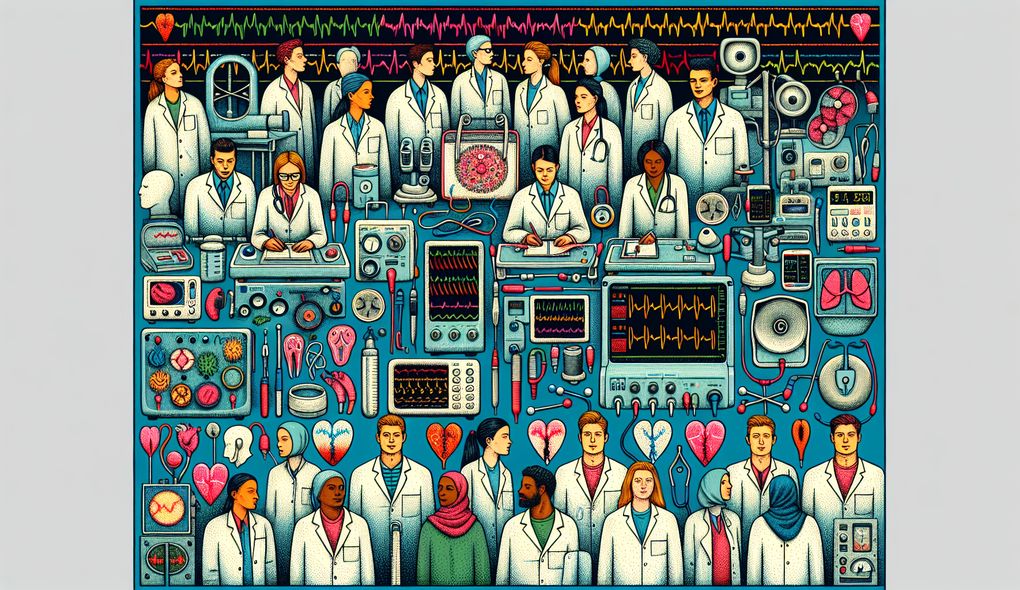Can you explain the process of informed consent and how you ensure that patients understand the risks and benefits of a procedure or treatment?
JUNIOR LEVEL

Sample answer to the question:
Informed consent is the process of obtaining permission from a patient before conducting a medical procedure or treatment. It involves explaining the procedure, risks, benefits, and alternatives to the patient, ensuring they fully understand the information. To ensure patients understand, I use simplified language, visual aids, and ample time for questions. I also assess their comprehension by asking them to repeat the information back to me. Informed consent is documented through a signed consent form. It's crucial to prioritize patient autonomy and respect their decision to give or withhold consent.
Here is a more solid answer:
The process of obtaining informed consent involves explaining the procedure or treatment to the patient in simple terms, using visual aids when necessary. I ensure that I address the risks, benefits, and alternatives so that patients can make an informed decision. To gauge their understanding, I encourage questions and ask them to repeat the information back to me. For more complex procedures, I provide written materials for them to review. I also ensure that the patient has had ample time to process the information and consult with their family or trusted advisors if needed. Finally, I document the entire process and obtain their signed consent. This approach allows me to prioritize patient autonomy and respects their right to make decisions about their own healthcare.
Why is this a more solid answer?
The solid answer provides a more detailed explanation of the informed consent process, including specific strategies such as using visual aids, encouraging questions, and providing written materials. It also emphasizes the importance of giving patients enough time to process the information and involve their trusted advisors. However, it could further improve by including examples of how the candidate has applied these strategies in their previous work.
An example of a exceptional answer:
Obtaining informed consent is a crucial part of patient care as it ensures that individuals have a clear understanding of the risks and benefits involved in a procedure or treatment. To facilitate this process, I adopt a patient-centered approach. This involves tailoring my explanations to each patient's level of understanding and using visuals, such as anatomical models or diagrams, to enhance comprehension. Additionally, I take the time to answer any questions they may have, providing reassurance and addressing concerns. In situations where language or cultural barriers exist, I utilize interpreters or cultural mediators to ensure effective communication. Furthermore, I evaluate patient understanding by asking them to summarize the key points and encourage them to involve their family members or support networks in the decision-making process. By engaging patients in these ways, I empower them to make informed choices about their healthcare while upholding their autonomy and respecting their values.
Why is this an exceptional answer?
The exceptional answer demonstrates a comprehensive understanding of the informed consent process and goes beyond the basic and solid answers by providing specific examples of how the candidate tailors their explanations, uses visual aids, and overcomes language or cultural barriers. It also highlights the importance of involving the patient's support network in the decision-making process. This answer effectively addresses all the evaluation areas and showcases the candidate's expertise in patient-centered care.
How to prepare for this question:
- Familiarize yourself with the legal and ethical principles of informed consent.
- Practice explaining complex medical concepts in simple terms using analogies or visual aids.
- Research different cultural beliefs and norms related to informed consent to effectively communicate with diverse patient populations.
- Reflect on your past experiences in patient education and think of specific examples that demonstrate your ability to ensure patient understanding.
- Stay up-to-date with research and guidelines related to informed consent to incorporate best practices into your approach.
What are interviewers evaluating with this question?
- Knowledge of informed consent process
- Communication skills
- Patient education
- Attention to detail

